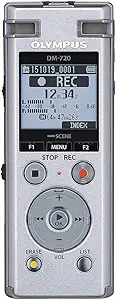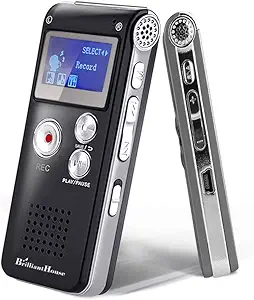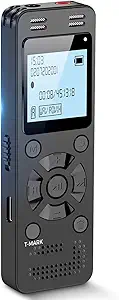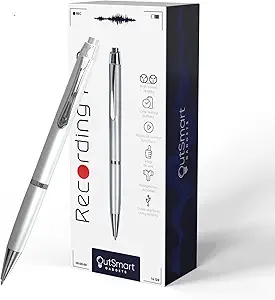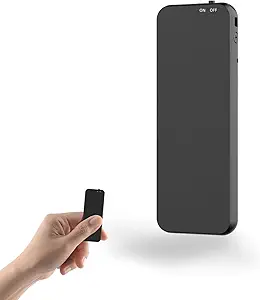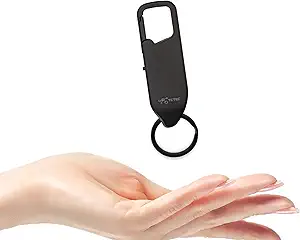The Ultimate Buying Guide for Voice Recorders: Types, Features, Prices, and Tips
Overview
Voice recorders are essential tools for capturing audio notes, lectures, interviews, and other important recordings. With so many options available in the market, choosing the right one can be overwhelming. In this buying guide, we will provide you with all the information you need to make an informed decision. We will cover the different types of voice recorders, key considerations, features, prices, tips, and FAQs.
Types
1. Digital Voice Recorders: These are the most popular type of voice recorders. They use digital technology to capture and store audio files, which can be easily transferred to a computer or other device. They are portable and offer a range of features such as noise reduction, voice activation, and multiple recording modes.
2. Analog Voice Recorders: These are older types of voice recorders that use magnetic tape to record audio. They are less common today, but some people still prefer them for their simplicity and durability.
3. Smartphone Voice Recorders: Many smartphones come with built-in voice recorder apps that allow you to record audio. While they are convenient, they may not offer the same quality and features as dedicated voice recorders.
Key Considerations
1. Memory Capacity: The amount of storage space on a voice recorder determines how much audio it can store. Consider how much recording time you need and choose a device with enough memory to meet your needs.
2. Battery Life: The battery life of a voice recorder is important if you plan to use it for extended periods. Look for a device with a long battery life or one that can be easily recharged.
3. Recording Quality: The recording quality of a voice recorder is determined by the microphone and other features such as noise reduction and voice activation. Consider your needs and choose a device that offers the best recording quality for your purposes.
Features
1. Microphone Quality: The quality of the microphone is crucial for capturing clear audio. Look for a device with a high-quality microphone or one that allows you to connect an external microphone.
2. Recording Modes: Different recording modes offer different levels of quality and flexibility. Look for a device with multiple recording modes to suit your needs.
3. Playback Options: Some voice recorders offer a range of playback options such as speed control, repeat, and bookmarking. Consider your needs and choose a device with the playback options you require.
Prices
Voice recorders vary in price depending on their features and quality. Basic models can be found for as little as $20, while high-end models can cost over $200. Consider your budget and needs when choosing a device.
Tips
1. Test the Device: Before purchasing a voice recorder, test it to ensure it meets your needs and offers the features you require.
2. Consider Accessories: Some voice recorders come with accessories such as microphones, headphones, and carrying cases. Consider purchasing accessories to enhance your recording experience.
3. Read Reviews: Read customer reviews to get an idea of the performance and reliability of different voice recorders.
FAQs
Q: What is the difference between analog and digital voice recorders?
A: Analog voice recorders use magnetic tape to record audio, while digital voice recorders use digital technology to capture and store audio files.
Q: How much memory do I need on my voice recorder?
A: The amount of memory you need depends on how much recording time you require. Consider how long your recordings will be and choose a device with enough memory to meet your needs.
Q: Can I use a voice recorder for music recording?
A: While some voice recorders can be used for music recording, they are not designed for this purpose and may not offer the same quality as dedicated music recording devices.
Q: Can I transfer my recordings to a computer?
A: Yes, most digital voice recorders allow you to transfer your recordings to a computer or other device for storage and playback.
Conclusion:
A voice recorder is a useful tool for capturing audio notes, lectures, interviews, and other important recordings. Choosing the right device can be overwhelming, but with this buying guide, you have all the information you need to make an informed decision. Consider your needs and budget, and choose a device that offers the features and quality you require.


